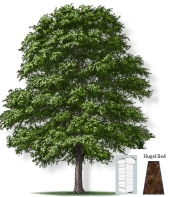David,
As a beekeeper, I may be a bit biased, but I think beekeeping would be an excellent addition to your
retirement plan!
I will say many people think that bees will be an easy set it and forget it type thing and it used to be, in the 90's before some invasive pests moved in (Namely the Varroa Mite). So there is a bit of a learning curve but nothing you can't handle, just need to know it's there AND get the basics to get started.
The HUGE pro that bees offer is that honey has a built in market. People know its value and seek it out. This can draw people in if and when you want to
sell other products also, the honey will be your gateway product

With that said, I would recommend not cutting corners on your equipment (I'm cheap so I get it) because this can lead you to having to replace the item soon after. Specifically cheap bee suits are a bad idea. What I did and many many beekeepers do is buy a cheap cotton/canvas suit then discover they are super hot and not very sting proof and replace them within about a month of having them, so money wasted. Here is a good comparison of the different
types of bee suits.
Also, many new beekeepers buy a full suit and within a few months realize a only jacket would
be nice (as it is a lot faster to put on). If money isn't an issue get both, but If you are not wanting to overspend I would suggest getting a jacket and pants combo this way you can have full protection when needed (first starting out and when bees get feisty...and bees do get feisty) but when you are comfortable with your bees and they are happy the jacket will be all you need (along with jeans of course). This company has a
New Beekeeper combo where they include the pants and jacket together and include a beekeeping course so you can learn what you need to get started, worth checking out.
The last piece of advice....Winter is the time to have a plan, order bees and equipment so everything is ready for spring. Lots of new beekeepers get excited in the spring to get started but struggle to get what they need, especially bees, so start now if you haven't already.
Hope this helps, beekeeping can be a deep topic, don't get overwhelmed. Learn the basics and jump in, you will learn much more along the way!

 2
2




 1
1





 2
2
















 2
2












